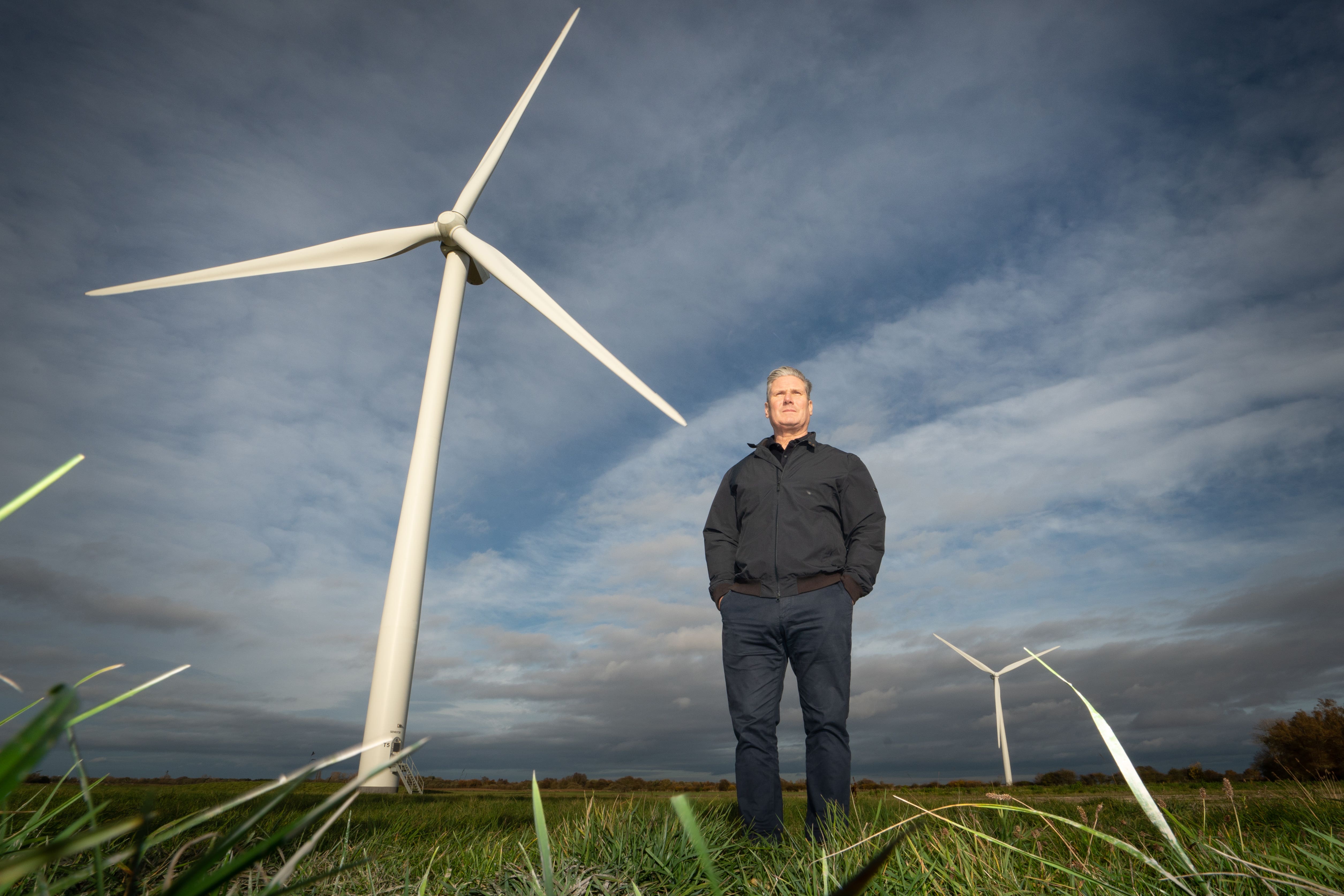Labour policy ‘blitz’ on clean energy backed by public, polling suggests
But ending winter fuel payments for many pensioners is not popular, the survey for think tank the Energy and Climate Intelligence Unit shows.

Your support helps us to tell the story
From reproductive rights to climate change to Big Tech, The Independent is on the ground when the story is developing. Whether it's investigating the financials of Elon Musk's pro-Trump PAC or producing our latest documentary, 'The A Word', which shines a light on the American women fighting for reproductive rights, we know how important it is to parse out the facts from the messaging.
At such a critical moment in US history, we need reporters on the ground. Your donation allows us to keep sending journalists to speak to both sides of the story.
The Independent is trusted by Americans across the entire political spectrum. And unlike many other quality news outlets, we choose not to lock Americans out of our reporting and analysis with paywalls. We believe quality journalism should be available to everyone, paid for by those who can afford it.
Your support makes all the difference.The Government’s clean energy policy “blitz” is getting noticed by the public and appears popular, polling suggests.
But removing winter fuel payments for millions of pensioners – announced by Chancellor Rachel Reeves as part of measures to plug a “black hole” in the nation’s finances – is opposed by the majority of people.
The poll of more than 2,100 people by YouGov for environmental think tank the Energy and Climate Intelligence Unit (ECIU) found nearly two thirds (64%) were aware of the setting up of Great British Energy, a publicly owned energy company, and 68% supported the move.
Half of those quizzed were aware of the policy to end the ban on onshore wind, with 60% backing the move, while around half (49%) were already aware of the Government’s policy of approving new solar farms and nearly three quarters (74%) were in favour of it when asked.
But two thirds of people (67%) were also aware of the move to remove winter fuel allowance payments from pensioners, apart from those who receive means-tested benefits, and 59% opposed it, with only 28% in favour.
The poll also asked people what would constitute “success” for the Government’s policy to prioritise increasing clean energy and reducing fossil fuels use.
The most popular answers were that the UK would increase its energy independence, chosen by 44% of those quizzed, and cheaper energy bills, picked by 42%.
But there was scepticism that Labour’s clean energy and climate policies would lower bills, with 61% saying they would definitely or likely not deliver cheaper bills, compared with 23% saying they would.
There was more belief that the clean energy policies would deliver more jobs in green industries, with 60% saying that would happen, compared with 22% who said it would not.
And nearly half (46%) thought the UK would definitely or likely increase its energy independence, compared with 36% who did not think it would.
Alasdair Johnstone, of the ECIU, said: “The new Energy Secretary Ed Miliband has moved quickly on a number of key manifesto commitments, with an announcement blitz that has been noticed and crucially for the new Government appears to be popular.
“On an election campaign which saw energy security as one of the key dividing lines, the public endorsed a prospectus which focused on more energy independence, delivered through renewable energy, and so less reliant on energy imports.
“But with the gas crisis ongoing, bills still £400 higher than they were before the crisis and set to rise again ahead of winter, restrictions on winter fuel payments are unsurprisingly much less popular.”
If the UK is going to insulate itself from gas market volatility in the coming years, the Government needs to “get on with” ramping up home energy efficiency and encouraging the take-up of electric heat pumps, he urged.
“There is a public desire to see a government which delivers, and there is risk for this new Government if it fails to do so on one of its key policy pillars,” Mr Johnstone warned.
There is a public desire to see a government which delivers, and there is risk for this new Government if it fails to do so on one of its key policy pillars
A Government spokesperson said: “We are taking immediate action implementing our long-term plan to make Britain a clean energy superpower – boosting our homegrown supply by radically increasing the deployment of onshore wind, solar and offshore wind.”
They pointed to removing barriers to onshore wind and consenting solar power and said Great British Energy would unlock billions of private investment and deliver new energy projects and jobs.
“Around 1.3 million households in England and Wales will continue to receive winter fuel payments and our warm home discount is expected to support three million households with £150 off their energy bills,” the spokesperson said.